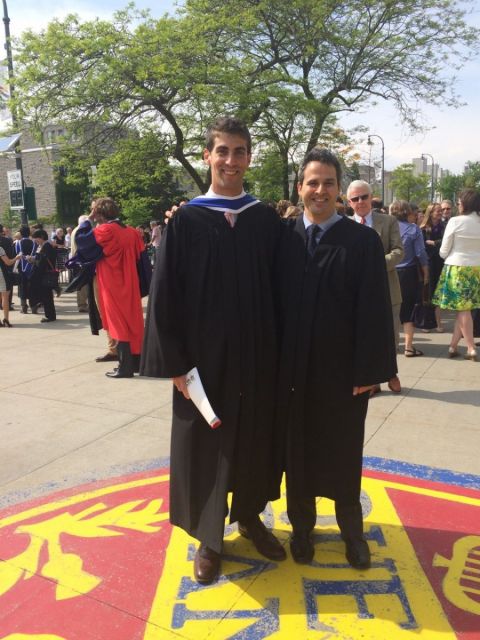
While his focus isn’t squarely on administrative law – yet – Dan Rosenbluth is off to a great start in the field. He’s the recent winner of the Paul Smith Essay Competition, a national award granted by the Canadian Bar Association’s National Administrative Law Section.
His paper -- "Deference on Ministerial Interpretations of Law" – wasn’t written for the competition, Rosenbluth explains. “I saw the competition advertised around the law school and figured that I had a paper ready to go that squarely fit the criteria,” he says. “I thought I might as well give it a shot and see what happens!”
What happened was an enthusiastic reception from competition judges, who awarded him the Paul Smith win – an annual award for the best scholarly paper on a subject related to Canadian administrative law. The competition is named for the CBA’s former chair, himself an important figure in supporting administrative law in Canada.
“I received an email about the award while studying for exams, so that helped keep my spirits up,” Rosenbluth says. “I feel surprised and humbled to win a nationwide contest. Being recognized like this validates and reinforces my interest in administrative law and gives me confidence that I can make a real contribution to this field throughout my career.”
A recent graduate of Queen’s Law, Rosenbluth is now articling at Paliare Roland in Toronto, a civil litigation firm with a strong presence in administrative law. “I hope to get as much as possible to [administrative law] during articles and I’m really excited to work alongside some really great administrative lawyers,” Rosenbluth says.
He attributes some of his success to the late Stan Corbett, Rosenbluth’s first administrative law professor and coach for the Laskin Moot in 2014. “We spent many hours together talking both big ideas of public law and line-editing minutia. He was an amazing professor and man,” Rosenbluth says. Credit is also due, he says, to professor Bruce Pardy, who “first taught me how to think like a lawyer as my small section first-year torts prof and then played an invaluable role in helping me develop this paper. He was very generous with his time and thoughtfully challenged my arguments, forcing me to tighten up my logic and make the paper much better. I definitely would not be here today without his guidance.”
Details of the award, and a link to Rosenbluth’s paper, can be found at the Canadian Bar Association website.